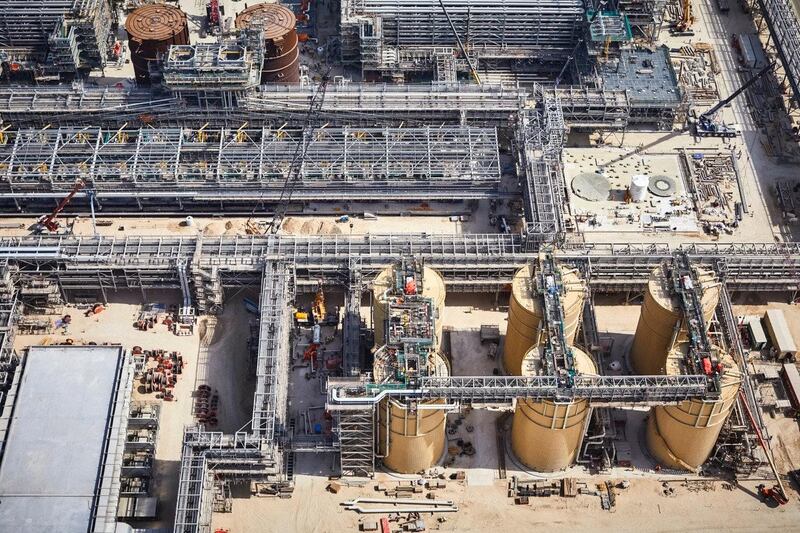The balance of loans extended by lender in the UAE to the industrial and business sectors rose 3.4 per cent since the beginning of this year as the economy picks up pace on the back of a recovery in oil prices.
The credit extended to industries and business entities climbed to Dh774.5 billion at the end of May, from Dh748.9bn reported in December 2017, according to figures released by the UAE Central Bank, the Emirates' state media agency WAM reported.
The two sectors, which make up the backbone of the UAE's non-oil economy, borrowed 48 per cent of aggregate loans offered by banks to all sectors, which came in at Dh1.6 trillion, according to the central bank data. The marked rise in loans is a clear sign of the sustained growth of the two sectors in earlier months, which will also stimulate national economic growth, Wam reported, citing banking analysts on Monday.
From January to March 2018, the two sectors received credit facilities worth Dh5.3bn. In 2017, loans and advances to to industrial and business entities reached Dh20.5bn.
The department of economic development said Abu Dhabi last year attracted Dh6.2bn in investments in its industrial sector, with 37 new industrial units reaching production stage, as the emirate continues to push for development of industries in a bid to cut its dependence on oil income, The National reported in February.
The government, instead of making direct investments into the industrial sector, intends to shift its policy to supporting investors in order to boost the sector’s contribution to the emirate’s economy, Khalifa Al Mansouri, undersecretary of the department, said at the time.
_______________
Read more:
Moody’s maintains stable outlook for Arabian Gulf banks thanks to resiliency
Sheikh Mohammed bin Zayed announces Dh50 billion stimulus for Abu Dhabi
_______________
“This will require a major change in the growth of the industrial sector, through the shift from government investment in the industrial sectors, to investment in policies and initiatives that will improve the competitiveness, and maximise the attractiveness of the emirate of Abu Dhabi for investors willing to get involved in industrial activities in the emirate,” said Mr Al Mansouri.
Abu Dhabi, which holds about 6 per cent of the world's proven oil reserves, is undertaking measures to diversify its income and cut its reliance on sale of hydrocarbons for revenues by supporting initiatives to boost the non-oil sector’s contribution to GDP. Dubai and other emirates are also undertaking separate initiatives to boost their industrial sectors.
The total number of new industrial licences that went into production in Abu Dhabi rose 85 per cent last year from 2016, with 29 factories situated in Abu Dhabi, six in Al Ain and two in the emirate's Al Dhafra region.
The total number of licences in Abu Dhabi reached 1,657 by the end of 2017, with 1,157 of them issued in the capital. The majority of licences focus on the metal industries (428), followed by building materials (393), fiberglass, plastic and sponge (210), wood, cardboard and paper industries (176) and chemical industries (160).
The number of new industrial licences nearly quadrupled last year to 86 from 22 in 2016. The total number of industrial licensing transactions achieved in 2017 reached 28,404, an 8.3 per cent increase from 2016, according to government data.







